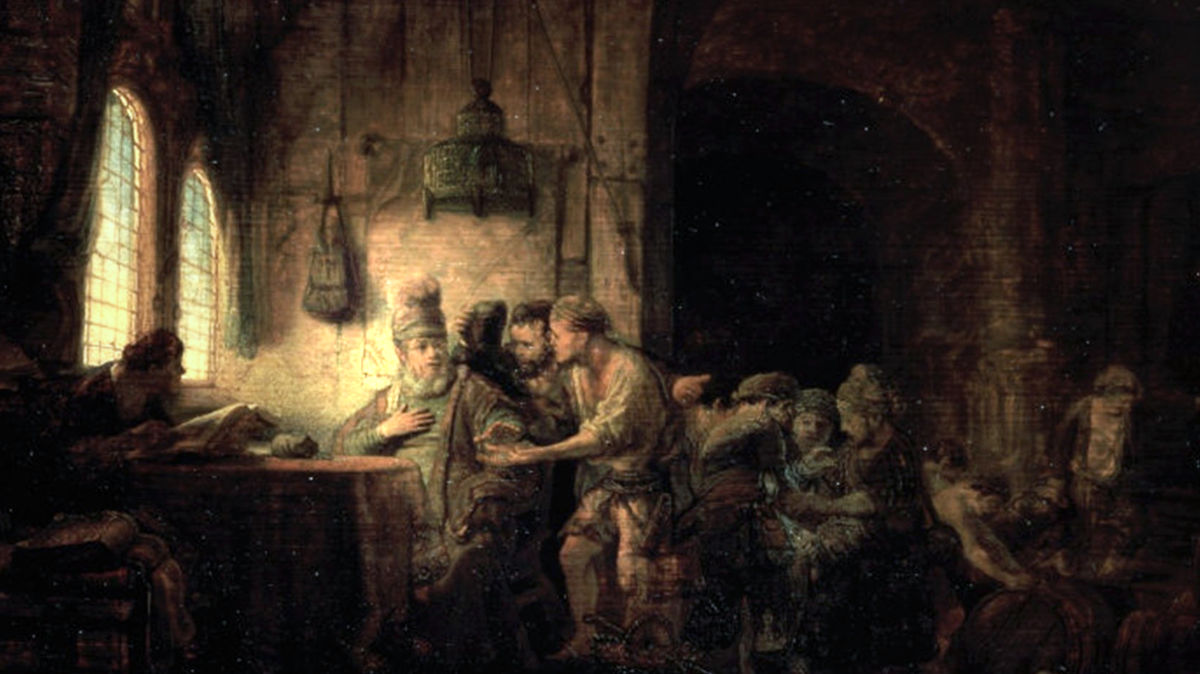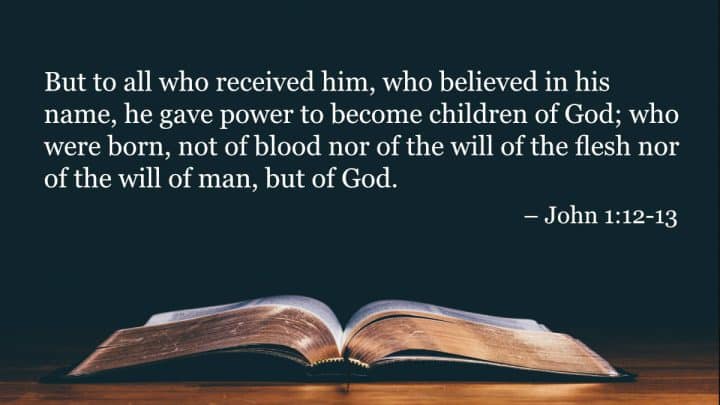
The question we should continually ask ourselves is, “This thing I am doing, this thing that I desire or this thing I have… is it bringing me closer to God and who He made me to be… or is it separating me from Him?”
I believe that one of the great challenges of our time derives from the loss of knowledge and understanding of who we are and what we are made for. Actually, we may know these eternal truths, but we tend to suppress them in our consciousness.
In this age of consumerism, we tend to define ourselves, not by who we are and for what we are made, but rather, by what we have or don’t have.
One might worry over such questions as… “Am I popular? Do I have material wealth—a nice home, fine cars, wonderful vacations? Am I physically attractive? Did I get that promotion at work?”
Or maybe we fret over having none of these, only a consuming, disordered desire for them.
WHEN HAVING IS PURSUED OVER BEING
“Having things” is not inherently wrong. Many today are without work and income and it is not wrong to desire these things. But, when attachments to things of this world become more important than being who we are made to be, such attachments become disordered and sinful.
Please catch that distinction.
Desiring to provide shelter, clothing, food, medicine and education for our family is not wrong unless that desire and the actions that derive from that desire become more important to us than God and His Will for our lives.
The question we should continually ask ourselves is, “This thing I am doing, this thing that I desire or this thing I have… is it bringing me closer to God and who He made me to be… or is it separating me from Him?”
Our human dignity comes from God—He made us, He sustains us in life and He desires us to be blessed and enjoy communion with Him for all eternity in Heaven. To humans and angels alone He has given a mind that is rational and a will that is free.
All the things of this modern culture that typically consume us are of no value when set in opposition to this dignity. Remember a few weeks ago (Twenty-Second Sunday in Ordinary Time – Year A) we heard Jesus ask in Matthew 16:26, “For what will it profit a man, if he gains the whole world and forfeits his life?”
JESUS CORRECTS OUR MISUNDERSTANDING
Our first reading today is from the prophet Isaiah and it is a timely reminder. We are told to “seek the Lord while he may be found, call him while he is near.” We are reminded that the Lord says, “For my thoughts are not your thoughts, nor are your ways my ways…”
It seems that the people who lived at the time of Jesus suffered challenges similar to our own. Jesus needed to turn their world upside down—or we should say, right side up. So often when faced with such a daunting task, Jesus would use parables to teach.
Today’s Gospel (Matthew 20:1-16) presents the Parable of the Workers in the Vineyard. Our translation uses times of the day that are familiar to us: dawn, 9 a.m., Noon, 3 p.m. and 5 p.m. At each of these times, the landowner went to where the day laborers, hoping for a day’s work, would be gathered. At dawn, he selected workers to toil in his vineyard and negotiated a day’s wage with them. Then at each of these other hours, he returned to the marketplace and selected additional workers. These times would be reckoned differently by the workers of Jesus’ day; they would be the 1st hour, the 3rd hour, the 6th hour, the 9th hour and finally the 11th hour.
There are several points of interest in this story:
- As a point of reference, the landowner employed his day laborers at the 1st hour and agreed to the usual daily wage.
- Then, at later hours throughout the day, he is said to have noticed other workers in the marketplace who had not been hired. He selected from among these workers as well, told them to go and work.
- These late-hires relied upon his word that he would pay them what was just.
- He hired more workers, even at the 11th hour with only one hour of work remaining in the day. We have to see that it is unlikely that these latest workers were needed. Surely he would have been able to hire sufficient workers before the 11th hour! Does this not point to his generosity?
- When it came time, at the end of the day, to pay his workers, they all received wages for the full day, the late-hires the same as those hired at dawn.
There are two ways one might react to this last point. The first is to see the landowner as being totally unfair to those hired early in the day—Jesus tells us that is how those hired at dawn reacted—or alternatively, we can praise the landowner for his incredible generosity. I would suggest that those who are more concerned with “having” than “being” would be more likely to agree with the first reaction… and Jesus teaches that such a reaction is wrong… “for my thoughts are not your thoughts, nor are your ways my ways…”
Now the first application of this parable, in a spiritual sense, is directed to the Jews of Jesus’ day. He knew that the Jews—the Chosen People of God—would tend to react negatively to the Kingdom being opened to the late-comers, that is, the Gentiles. “We were first,” they might say, but Jesus warned that if they were envious of the late arrivals, then the first would be last.
But this parable has application for everyone also. Here are some additional points to take to your prayer.
- Work is a blessing from God, not because of our disordered desires to have, but because it is the dignity of mankind to work. Even before the Fall of Adam and Eve, they were given work by God. He has called us to work and to rest. Work (and rest) is noble. It is who we are. It is a part of our greater vocation to holiness. Do not confuse the curses that came after the Fall with the inherent nobility of our work.
- All of us, especially those who are gainfully employed, must be moved with compassion to help those who are not employed and those who are under-employed… first to help them meet their immediate needs for shelter, clothing, food, medicine and education for themselves and their families; and also to help them meet their need for work itself and a just wage to go with it.
- When we confuse the tendencies of the consumer culture that give rise to worries and anxiety in our disordered pursuit of having things, we tend to worry about our place and standing in regard to others. This is the tendency of pride and will lead even to spiritual avarice and envy where we begrudge God even his generosity and abundant mercy, forgetting that we do not deserve them ourselves.
- This can lead us to actually believing that we somehow deserve what we want and what we have, forgetting that all things come from God, even the very breath of health and life we enjoy. Instead of wanting and willing the good of the other, we then mostly want and will the good for ourselves. When that occurs, we have failed to love as God loves and we have failed to be who God made us to be.
- When we fail to love, we might believe that we are good Catholics because we practice all the externals of our religion, just like many Jews in Jesus’ time believed that they were good and faithful. We would be mistaken.
But no matter how we have lived, our God is generous in His mercy. If the message of Christ has made you aware of your failings—then good! Resolve to fail no more. Now there may be some who have believed that your sins are too great and too many… that it is too late to turn to Him and ask for His mercy… know that you are mistaken and need not be afraid. Even if it is the 11th hour, humbly turn to Him with a contrite heart, accept His mercy and be merciful to others… for, “The Lord is near to all who call upon him, to all who call upon him in truth.”
Into the deep…
Image credit: Laborers in the Vineyard (detail) | Rembrandt, Public domain, via Wikimedia Commons
Reflection on the Mass readings for the Twenty-Fifth Sunday in Ordinary Time (Year A) — Isaiah 55:6-9; | Psalms 145:2-3, 8-9, 17-18; | Philippians 1:20-24, 27; | Matthew 20:1-16;
A popular and engaging speaker, Deacon Bickerstaff is available to speak at your parish or event. Be sure to check out his Speaker Page to learn more. Into the Deep is a regular feature of the The Integrated Catholic Life™.
Please help spread the Gospel. Share this article with family and friends on Facebook and other social media.
We Need Your Help…
Please help us. We strive to operate on a very small budget, but we need your help. Both one-time and monthly donations are welcome. Just $10 a month will help cover the cost.




